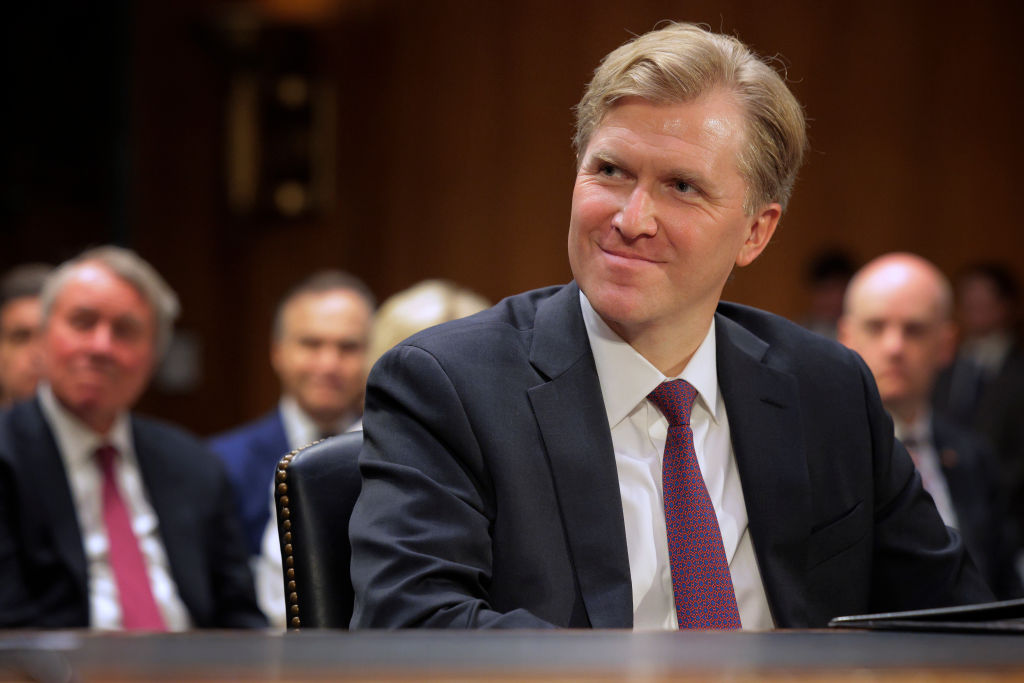The trade deal on July 27 between America and the European Union was disastrous for Europe. The Financial Times described it as “the EU [succumbing] to Trump’s steamroller.” The deal sees the EU agree to a broad-based 15 per cent tariff on all goods exported to the US, except for steel and aluminium, which will see higher tariffs. The EU will also spend $250 billion (€214 billion) on American energy per year for the next three years. Europe also is dropping their own tariffs.
The deal is shockingly one-sided; the only thing the EU “got” was President Donald Trump not engaging in a trade war.
But while Commission President Ursula von der Leyen negotiated the deal, this truly is not her fault. The European Union is stuck in this situation – where they have to see NATO’s General Secretary (and former long-term Dutch prime minister) call Trump “Daddy” and then, weeks later, engage in a humiliating trade deal – because the EU is fundamentally not built for a multipolar world. Instead, it’s been stuck in what could be called its “Articles of Confederation” stage.
America’s current constitution is not its first governing agreement. That was the Articles of Confederation, which were written during the Revolutionary War. The Articles were a loose association of the 13 states where each state had immense powers; unanimity was needed to make key decisions, and the “central government” – a Congress elected from each state – could only act by getting permission from the governments of the 13 states. Sound familiar?
This system came and went quickly. By 1787, America’s leaders realised that, in the multipolar world of the late 1790s, America could simply not exist as a viable state with such a weak governing structure. The country was unable to take action; not with the British or French poles, not in regard to its own continent, not even with its own defence or taxation policies. Needing to ask every state for permission led to massive delays and an inability to take decisive action. By 1789, America had a new constitution, a president, George Washington, and a new governing model. The rest is history.
The European Union is in a similar boat. When the world was bipolar, pan-European agreements (such as a customs union) worked well. They were mostly confined to western Europe (the east was under Soviet domination) and were under America’s military and nuclear umbrella, all good conditions for putting aside past differences and making trade and travel easier.
When the European Union formally came into being in 1993, the world had changed to unipolarity: the Soviets had collapsed and America stood unchallenged. Its protected allies – in another century, one would call them vassals – could expand to include central and eastern Europe. From 1993 until today, 16 countries, most of the Union’s 27 member states, have joined. This expanded the EU’s challenges: After all, on a geopolitical scale, France and Belgium, or even France and Germany, could have similar goals. But France and Lithuania, or Latvia and Spain, have fundamentally different geopolitical needs. Needing to ask all 27 for permission was certain to cause delays and weaken Europe’s bargaining position.
If America was clearly going to stay as Europe’s protector, this rapid expansion would cause Europe no issue; the internal contradictions could be shaded by the American umbrella. But if America ever decided it did not want to finance Europe’s social welfare state by paying for their defence, the Union would be in trouble.
Under both Trump presidencies, America has done just that. At the same time, the world has shifted to multipolarity, and the EU’s internal contradictions are causing it serious problems. In a world where there are at least three poles – America, China, and Russia – the Union is being pulled in multiple directions. It has clearly decided that it will not have good relations with Russia; this is the inevitable result of it having expanded to include eastern European countries, many of whom have (understandably) grim memories of Russian domination. But in doing so, western and central European states – which have no inherent reason to have bad relations with a Russian state – are forced to likewise keep things frosty with Moscow.
So that’s one pole down. What about the others? Europe sends a plurality of its exports to America, but imports a plurality from China. Plus, while Europe has talked big about defence spending, their promises to raise funds are basically smoke-and-mirrors; many of the promises, such as von der Leyen imagining “€800 billion in defence spending” are entirely hypothetical, based on the ludicrous idea that every member state will raise spending by 1.5 per cent. The more concrete promises from member states, saying they will raise defence spending, all conveniently go into effect toward the end of the decade or even in the early 2030s – long enough to quietly downshift when the cameras are off.
Which means they need good relations with both America and, less so, with China. America can manage poor relations with the other two poles (though even that will come to be a challenge). Europe cannot.
But America is not going to accept Brussels kowtowing to China; after all, China will be America’s main adversary for the first half of this century. Plus, eastern Europe will never want to lose America as an ally so as to keep Russia at bay. Germany will not want to threaten its American exports. And so on, and so forth. This all results in Europe having to go through these humiliating rituals to keep America on board.
It is long past time for Europe to realise what America’s leaders realised in the 1780s: multipolarity and Articles of Confederation-style governance don’t mix. They could seek to truly federalise the Union, but that would meet stern opposition from the variety of nationalistic countries who do not want their fates to be determined by Brussels.
Instead, they should consider the opposite: Devolution of powers back to the states. Let the “Union” exist as a project for travel and trade, but end attempts to shape social policies – such as, in the midst of geopolitical uncertainty, taking the time to hector Budapest on Pride Month. End the attempts to form illogical pan-continental defence agreements, too. Allow blocs to form, for example, an eastern European bloc of Poland and the Baltics, armed to the teeth, one which can determine its own policies without being tied down to what Spain wants.
The EU, as currently constituted, cannot and will not be able to act as an independent power, much less as a pole, in multipolarity. It must change.





Is Zelensky worried about what corruption investigators could find?